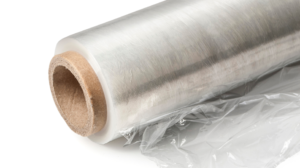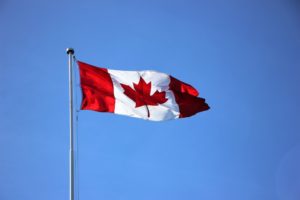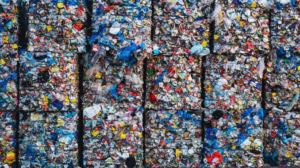- Policy
- Government
- Facts & Stats
- Plastic Pollution
- National
- International
Plastics in British Columbia
British Columbia is the only province in Canada with 100% extended producer responsibility for packaging materials. Under B.C.’s system business owners pay a fee for packaging they create. The Recycling Regulation, under authority of the Environmental Management Act, sets out the requirements for extended producer responsibility (EPR) in B.C.
Recycle BC is a not-for-profit organization responsible for residential packaging and paper product recycling throughout British Columbia. These are the communities Recycle BC has directly assumed responsibility for curbside recycling. Recycle BC ensures household recycling is picked up, sorted, and responsibly recycled. Over 1,200 businesses, including retailers, manufacturers and restaurants, fund the Recycle BC program, shifting costs away from homeowners.
Extended Producer Responsibility Policy Framework
Legislated EPR Programs
- Beverage containers
- Electronics – audio-visual and telecom, cell phones, computers and accessories, tools, TVs, large and small appliances
- HHSW – batteries, corrosives and irritants, flammables, pesticides, aerosols, mercury lamps and other mercury products, paint, pharmaceuticals, solvents
- Automotive – lead acid batteries, tires, used oil, filters and containers, glycol PPP
Voluntary EPR Programs
- Milk containers
Other Diversion
- Municipally funded and operated organics programs
Planned EPR Programs
- Furniture, textiles, carpet
Diversion Rates
|
All materials diverted |
1,754,758 |
|
White goods |
20,493 |
|
Electronics |
30,856 |
|
Plastics |
65,851 |
|
Tires |
42,991 |
|
Construction, renovation and demolition |
126,623 |
|
Other materials |
29,040 |
Diversion Rate Statistics

Plastic Bans
City of Vancouver
The City has created a made-in-Vancouver strategy to dramatically reduce waste from single-use items. It begins with a ban on foam cups and foam take-out containers, starting Jan 1, 2020.
The Single-Use Item Reduction Strategy, approved by Council on June 5, 2018, was the result of extensive consultation with over 8,000 residents and hundreds of businesses.
Upcoming By-Law Changes
Plastic Action Centre has provided an abridged overview of the upcoming by-law changes in the City of Vancouver. For more information please visit City of Vancouver’s Single-Use Item Reduction Strategy.

Effective Jan 1, 2020, businesses are required to comply with a city-wide ban, which restricts licence holders from serving prepared food and beverages in foam cups and foam take-out containers. Hospitals and community care facilities are exempt, and a 1-year temporary exemption for charitable food providers will apply.

Effective April 22, 2020, ban on plastic and compostable plastic straws with an accessibility requirement to provide bendable plastic straws wrapped in paper. Food vendors must provide accessible straws (bendable plastic straws wrapped in paper) and provide them to customers, without question, upon request. A one-year exemption is provided for plastic straws served with bubble tea to allow time for the market to provide alternatives.

Effective April 22, 2020, all single-use utensils can only be given out by request.

Effective January 1, 2021, ban on plastic and compostable plastic shopping bags, with fees on paper and reusable bags.
Paper bags must contain at least 40% recycled content.
Minimum fees of $0.15 per paper bag, $1.00 per reusable bag.
Minimum fees increase January 1, 2022 to $0.25 per paper bag, $2 per reusable bag.

Effective January 1, 2021, there is a $0.25 minimum fee on all disposable cups.
This will create a favourable environment for Reusable Cup Share programs to expand.

City of Vancouver Staff are working with Vancouver Coastal Health to explore opportunities to launch a reusable container program in Vancouver.
The program will launch once Vancouver Coastal Health develops a guideline to allow restaurants to fill take-out orders in reusable containers brought in by customers.
The guideline will enable restaurants to create a documented procedure for approval by the local health authority to ensure that customers’ reusable containers can be filled in a manner that maintains sanitary conditions.
District of Tofino
- Material(s):
- Any bag used by a customer for transport of items from a business.
- Plastic straws, including “biodegradable” and “compostable” plastic straws
- Regulation: Single-Use Item Regulation By-Law No. 1263
- Date effective: June 8, 2019
District of Ucluelet
- Material(s):
- Any bag used by a customer for transport of items from a business.
- Plastic straws, including “biodegradable” and “compostable” plastic straws
- Regulation: District of Ucluelet Single-Use Plastic Regulation Bylaw No. 1247, 2019
- Date effective: June 8, 2019
City of Courtenay
- Material(s):
- Any bag used by a customer for transport of goods from a business, including take-out and delivery of food.
- Plastic straws, including “biodegradable” and “compostable” plastic straws.
- Regulation: Single Use Plastics Regulation Bylaw No. 2970
- Date effective: July 1, 2019. Official implementation begins March 31, 2020
Village of Cumberland
- Material(s):
- Any single-use plastic bag used by a customer for transport of goods from a business, including take-out and delivery of food.
- Plastic straws, including “biodegradable” and “compostable” plastic straws.
- Regulation: Single Use Item Regulation Bylaw No. 1098, 2019
- Date effective: July 1, 2019. Bylaw enforcement begins January 2020.
District of Sooke
- Material(s):
- Any single-use plastic bag used by a customer for transport of goods from a business, including take-out and delivery of food.
- Regulation: Plastic Bag Ban – Draft Checkout Bag Regulation Bylaw No. 734
- Date effective: January 1, 2020



